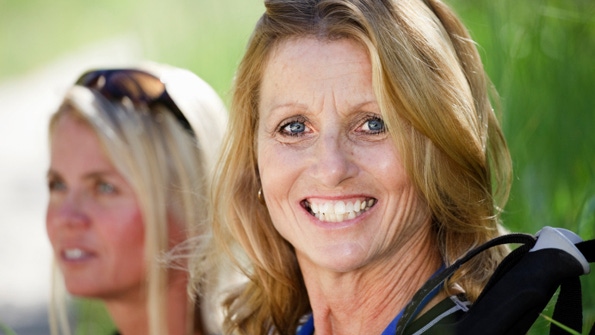A Spanish study reports that women are not getting enough vitamin D from food so they're increasing risk of certain diseases that often accompany menopause. Are retailers and manufacturers seizing the opportunity to provide D-fortified supplements to older women?
October 27, 2011

A new study from Spain finds that women are not getting adequate levels of vitamin D from their diets before, during, and after menopause, which puts them at greater risk of the common health conditions that may accompany this life stage, including diabetes, osteoporosis, heart disease and breast cancer. A related 2007 study at Brigham and Women's Hospital and Harvard Medical School reported that a combination of vitamin D and calcium reduced risk of breast cancer in perimenopausal women.
In the current study, which was published in Nutrición Hospitalaria, researchers examined the eating habits of 3,574 Spanish women, ages 45 to 68. Perimenopause often begins after age 40 and lasts until a woman does not menstruate for an entire year, when she is considered to be in menopause, which on average occurs at age 50.
The researchers found that while the majority of women were attaining the Recommended Daily Allowance (RDA) for most nutrients, they all fell short when it came to vitamin D and on average were only consuming 39% of the RDA for their age group. The other nutrient they were lacking was vitamin E. The study also reported that 29 percent of participants were obese and 42 percent were overweight.
The scientists concluded that a Mediterranean diet approach to eating more vegetables, fruits, nuts and beans, and less fat and protein could correct the low levels of both vitamins D and E. It appeared that the women were eating too much of another Med diet staple, olive oil, which may have been contributing to weight gain.
Perimenopausal women need supplements, too
Christiane Northrup, MD, an OB-GYN in Maine who has often appeared on The Oprah Winfrey Show to discuss a holistic approach to menopause and is author of The Wisdom of Menopause (Bantam Books, 2012), recommends that perimenopausal and menopausal women get their vitamin D levels checked. “A woman may need to supplement with as much as 5,000 IU per day to make sure her levels are optimal,” Northrup said. “Optimal vitamin D levels—40–100 ng/ml—are important for healthy cardiovascular function; mental performance; joint, bone, and muscle health; mood; and sleep quality, while lower levels lead to disease in these areas of the body.”
Manufacturers may want to consider adding vitamin D to their menopausal formulas as NaturaNectar has with its EaseFemin Menopausal Support product that contains 800 IUs of D as well as soy, calcium, and Brazilian red bee propolis. Pure Essence Labs' ProFema Menopause Multiple offers 1,000 IUs of D3 along with chaste tree, dong quai, wild yam, and isoflavones from kudzu root. Although the D dosage in both products isn't as much as Northrup recommends to restore levels, it's a good step toward assisting women with a healthier menopause through supplementation.
Retailers can also target this market of 37.5 million perimenopausal and menopausal women (according to U.S. Census data) by adding a variety of D and calcium products to their menopause supplements section. While NewHope360 has not seen evidence of natural retailers currently using this merchandising approach, let us know if your store does by weighing in on the discussion below.
About the Author(s)
You May Also Like




